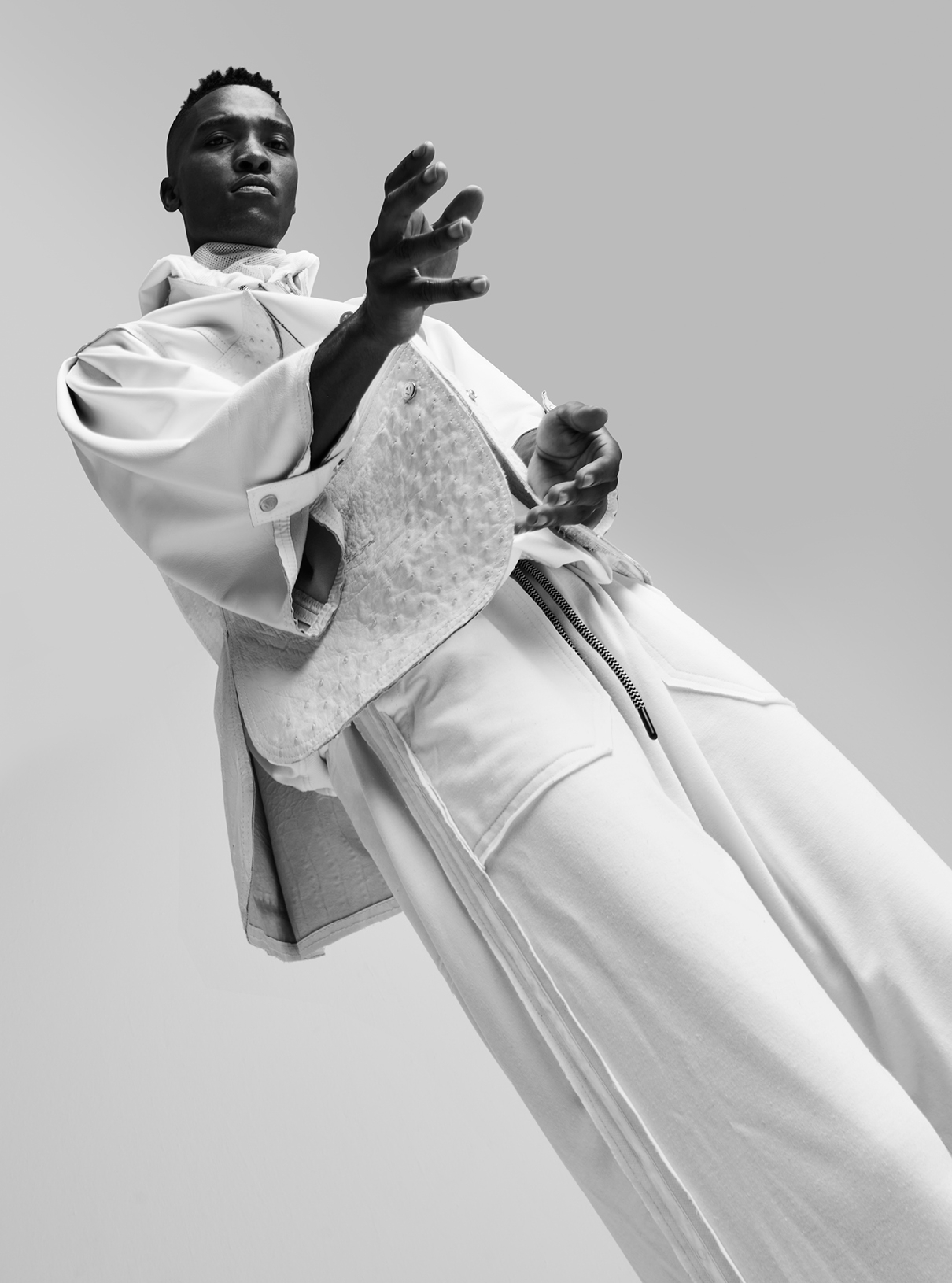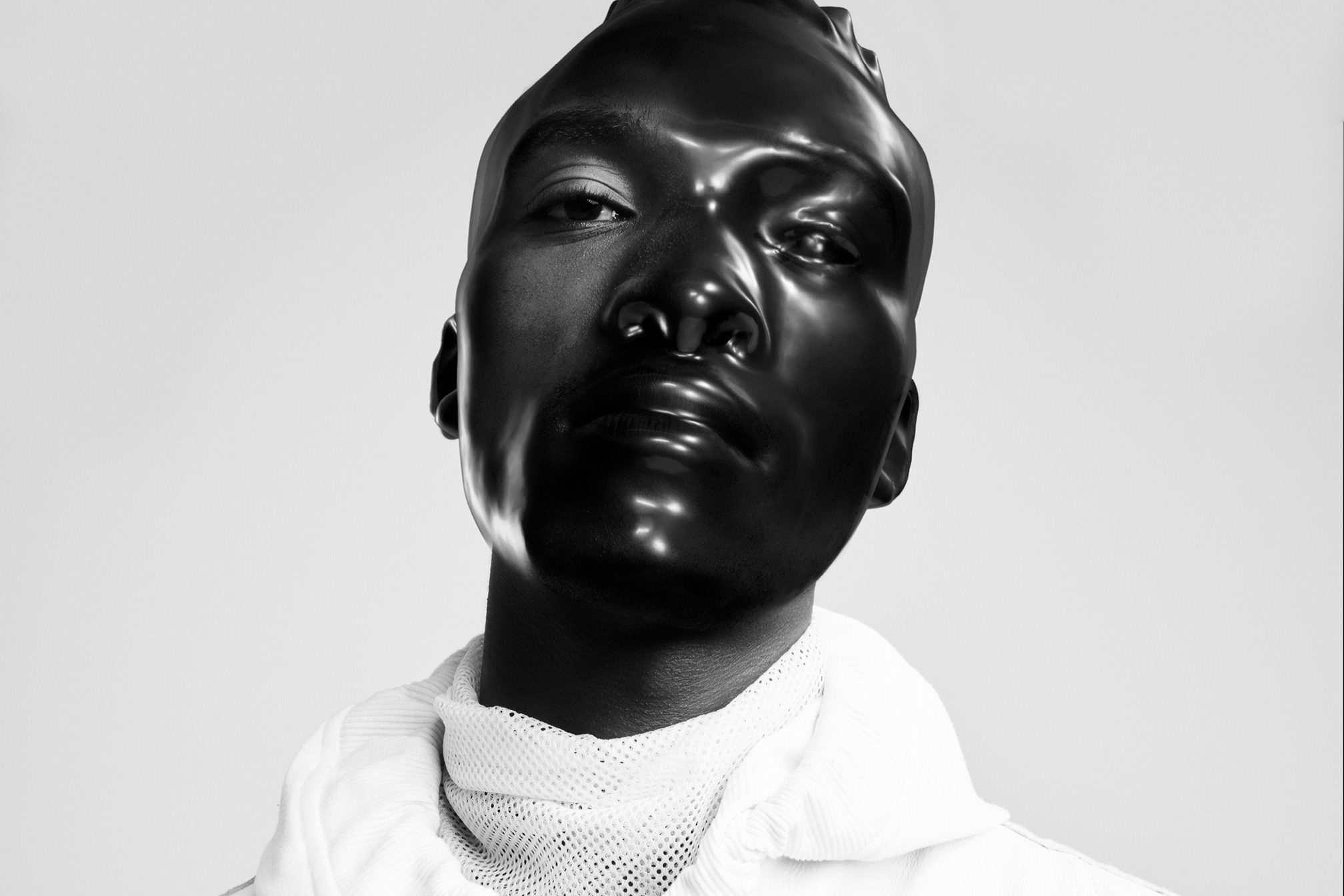 Features
Features
Life-changing encounters: Meetings with the gqom king, DJ Lag
Shiba Melissa Mazaza speaks to South African pioneer DJ Lag about his debut album 'Meeting With The King' and a series of encounters that shaped his path in music and life
Aggressive, poetic, artistic, different. These are words that come up often when discussing DJ Lag’s contribution to the South African phenomenon known as Gqom. Unmatched in his ascent from rebellious bedroom beatmaker to his success abroad, reflected in the self-assigned moniker “international pantsula”, to being crowned “Gqom King”, it seems DJ Lag’s trajectory has been more expansionist and flag-bearing as opposed to the sort of aggression a young, Black man would need to be equipped with, in order to survive Durban township life. Uttering his name as far as Berlin, London or Tokyo would be returned with knowing nods, even as those closer to home remain ignorant to the steps he has taken to bring global attention to local sounds. Wrapping one’s tongue around “Gqom” itself can be quite difficult, let alone trying to describe the sound of it, however describing DJ Lag as a man has been even more challenging for those who have heard of Durban’s dark horse but have never met him. Rarely going live in his downtime or engaging fans in the comings and goings of his daily life, DJ Lag has remained fairly tight-lipped about his life beyond the music, and some of the highs and hurdles on the way toward this stellar time in his career.
Read this next: Gqom is the explosive South African sound bursting into Europe
In the past week, he’s returned with a generous new album in 'Meeting with the King' to mark his highest moment as a pioneering producer, combining the dynamism of amapiano ad-libs alongside producer Mr JazziQ as well as Lady Du and the late Mpura; the romance of Afro house with singer-songwriter Amanda Black, the freshness of burgeoning Gqomtech and reuniting with a heap of hometown collaborators in Babes Wodumo and Omagoqa, along with entrancing sonic stylings all his own. With the opening track aptly titled 'Thongo Lami', meaning 'My Dream', it’s plain to see that any good story often begins with the decision to turn the imagined into reality, and in this 15 track exploration, Lwazi Asanda Gwala (L-A-G) finally introduces us to the DJ Lag he’s always wanted to be.

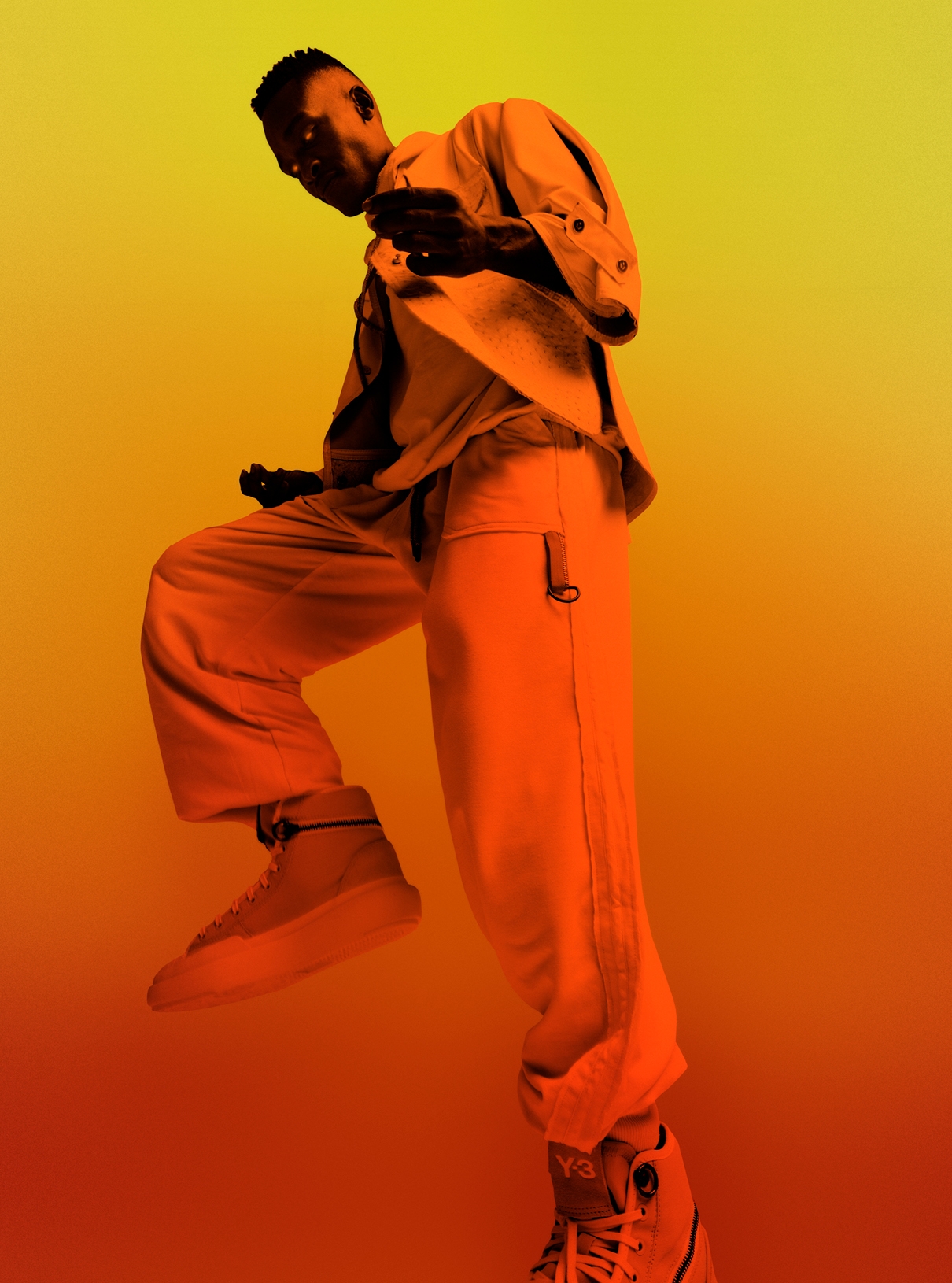
Growing up in the low-income township of Clermont, joining carjacking crews was the best way to make a living, with many around him losing their lives to career crime as he opted instead, to dabble in dance, sport and music. A boyfriend of his mother noted his preoccupation with music, and told him about new software that he could use to create his own sounds, so he decided to try to emulate what he had heard in his favourite hip hop tracks. At the time, he had just celebrated his 10th birthday.
Unable to afford decent equipment after his mother and the young man parted ways, DJ Lag felt a lingering emptiness until his mother decided to buy him a laptop in high school. Despite the pull of his peers looking to enforce their power in destructive ways, DJ Lag longed to create; having spent years watching kwaito child-star and family friend Msawawa release his first album at the age of 7 while their grandmothers gossipped together on the weekends. It’s not surprising then, that his own youthfulness never appeared as a barrier to his success. As time moved, Msawawa’s legacy multiplied, as did DJ Lag’s desire to be seen as more than just another aimless product of his circumstance. He wanted to know what it was like to live beyond the confines of class, to know more, to see and do more, and to be truly known.
Read this next: The Cover Mix: DJ Lag
By the time he was 19, DJ Lag understood that he had to stand out if he was ever to make his mark. Eventually, his determination, laser-focus and poise led him to champion his own artful take on Gqom, harnessing his penchant for cavernous soundscapes in ways that seem to have surprised everyone but him – far surpassing those gunning for a place of importance in South Africa’s competitive electronic music scene. DJ Lag watched as the genre he abandoned dominated South African charts, but even then his faith in Gqom’s guttural sounds was unwavering. At the release of his self-titled 2016 EP at Goon Club Allstars, crowds abroad roared for him, with audiences at home awestruck.
While artists around him took every opportunity to preach their importance, DJ Lag let his music speak for him, coming from left field in league with local heroes in Moonchild Sanelly, Babes Wodumo and DJ Tira, eventually releasing with the cream of internationally acclaimed creative crops in Diplo, Kelela and Beyoncé; all the while maintaining a sense of spectral detachment from the noisy music industry machine he would consistently outpace.
Today, genres coming to the fore such as amapiano and Afro house have experienced an upsurgence that could be credited to the first steps of this Gqom pioneer, who over the years has traveled quite literally far and wide to make himself and his brand of South African house known worldwide. Thus far, no other local act has featured in as many publications, secured as many partnerships, traveled to as many cities and conquered as many milestones with a genre created in so small an ecosystem, with as big an impact as his.

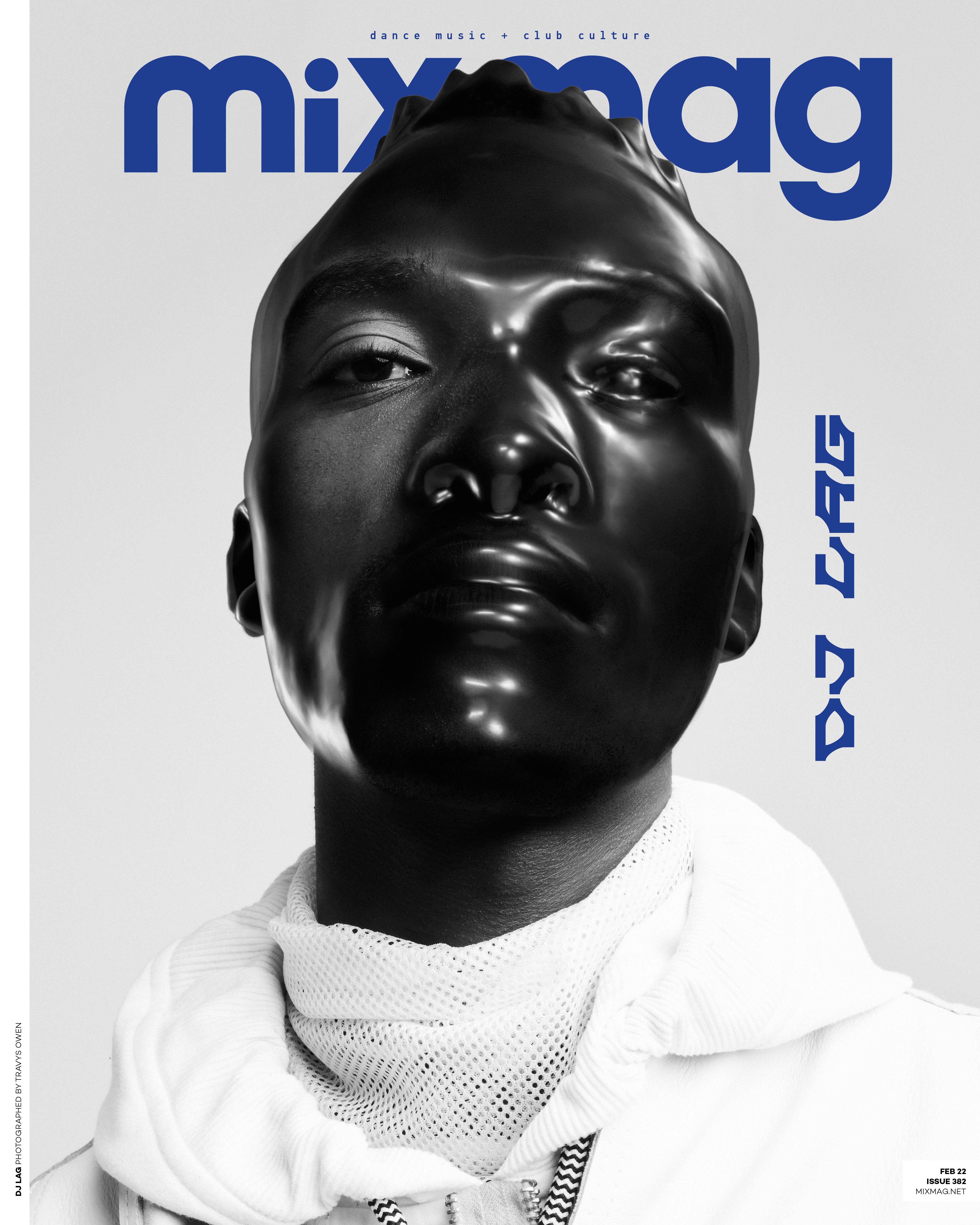
As time progressed, Lag would be swept up in situations that would require him to trust his own instincts, even as the teams around him grew. Upon asking about the encounters that shaped his career, he immediately speaks of Smiso “Okmalumkoolkat” Zwane, who at the time was spearheading his own groundbreaking moment within South Africa’s club culture.
“When I finished Grade 12, I decided to focus on music. Okmalumkoolkat heard my music while he was at a show in London and he tweeted that he wanted to meet me. We eventually booked some shows in Johannesburg. I don’t really remember which restaurant it was, but we ended up meeting for dinner [beforehand]. I was nervous, because he was too cool. He felt like a guy that I knew from way back when, but he was big. We walked around Braamfontein and people were looking at us and taking pictures… I got what it was like to feel like a celebrity. Anyway at this restaurant they served us meat at the table which was raw, and we had to season and cook it ourselves. The thing that really made an impression on me was the bill that came back; it was a sizable amount, probably around R600... For raw meat?! I thought, “what a nice way to live…” Not because it was expensive, but it gave me a good sensation inside to know that the music I was making could feed me this way. After everything I’d been through, it felt good to know I could have that.”
Read this next: Dwson symbolises the unified future of South African electronic music
As he headed back to the hotel after his set that night, Lwazi was left reeling at the crowd’s response. This was his first trip outside of Durban; his first time on a flight; his first time in a hotel; his first time performing outside his home town; the first time people who he had never met treated him like they felt what he felt. Later that same year, Okmalumkoolkat would invite Lwazi to what would become his first performance in Cape Town and a critical juncture in his journey toward working with Black Major, Boiler Room and Goon Club Allstars. He’d introduce Lwazi to Andrew Aitchison of A11 agency, a progressive and crafty creative looking to make a global impact, and would find just the inspiration he needed in DJ Lag.
“At the time Okmalumkoolkat was the only one pushing the Gqom sound before it had commercial interest,” recalls Andrew. “He brought Lwazi to Cape Town for his Party Time Shandeez series on August 14. I spent the evening with them and enjoyed our natural rapport, so we exchanged numbers. I’ve never danced like that in my life. Next came a request from an old flatmate of mine from London named Ella, then working at Boiler Room, who wanted to document a scene in Cape Town as part of a three-part G-star x Boiler Room documentary series focusing on scenes in Barcelona, London & Johannesburg. I tried to convince Ella to put the focus on Gqom in Durban instead, and I brought this idea to Black Major where I was working part-time while completing my Bachelor’s in Fine Art. I proposed the focus be on DJ Lag, as I just knew there was huge potential in him. Once the doccie was done, the relationship between myself, Lag and Black Major grew, which then followed on into 2016 with his debut release on Goon Club Allstars.”
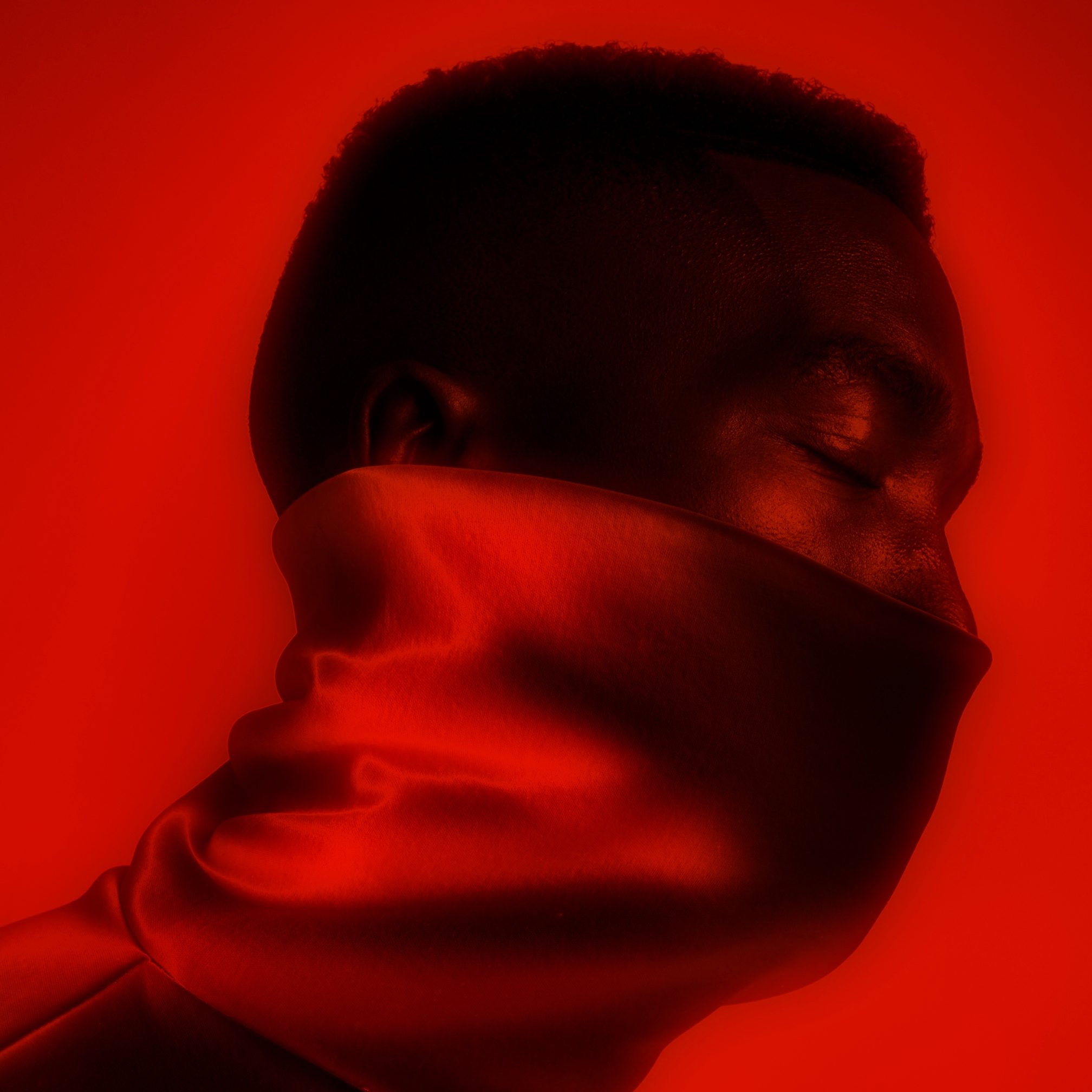
The third track from this debut EP would eventually become the subject of a global plagiarism debate, as well as the title of his own record label, Ice Drop, on which 'Meeting With The King' would be released. Managing the barrage of requests that would enter his life would leave him out of his depth, so he decided to place his faith in Andrew and director Chris Kets. The three of them together produced a synergy that often went with very few words and very bold actions, evident in the string of creative work they’ve produced since. Coupled with manager Sevi Spanoudi’s ambition and grit, the scene was set.
Read this next: In Session: DJ Lag
From then on, DJ Lag would meet many influential people across the world, creating most of his work from flights and hotel rooms. With touring circuits that would see him travel four separate times around the world, he’d pick up gems from the likes of Bone Soda’s Skinny Macho, rapper Riky Rick, and eventually producer-DJ Diplo:
“It happened two or three times before Diplo came to speak to me, him coming to see my shows. We weren’t in the same line-up but he’d just come to see me play. One day he told me that he’d heard my music and wanted to see if we could work together to release something on his label… that’s when we released ‘Uhuru’ on Good Enuff. Being able to work with people internationally and working with so many different artists and producers has made me so comfortable that when I settle back into South Africa, I can mix any style, whether it’s amapiano or Afrotech, to the point where I’m not even conscious of how different those styles are. I just enjoy the simple act of exploring and venturing into different genres, but at the same time there should always be something of mine that brings the music back to my core, which is Gqom.”
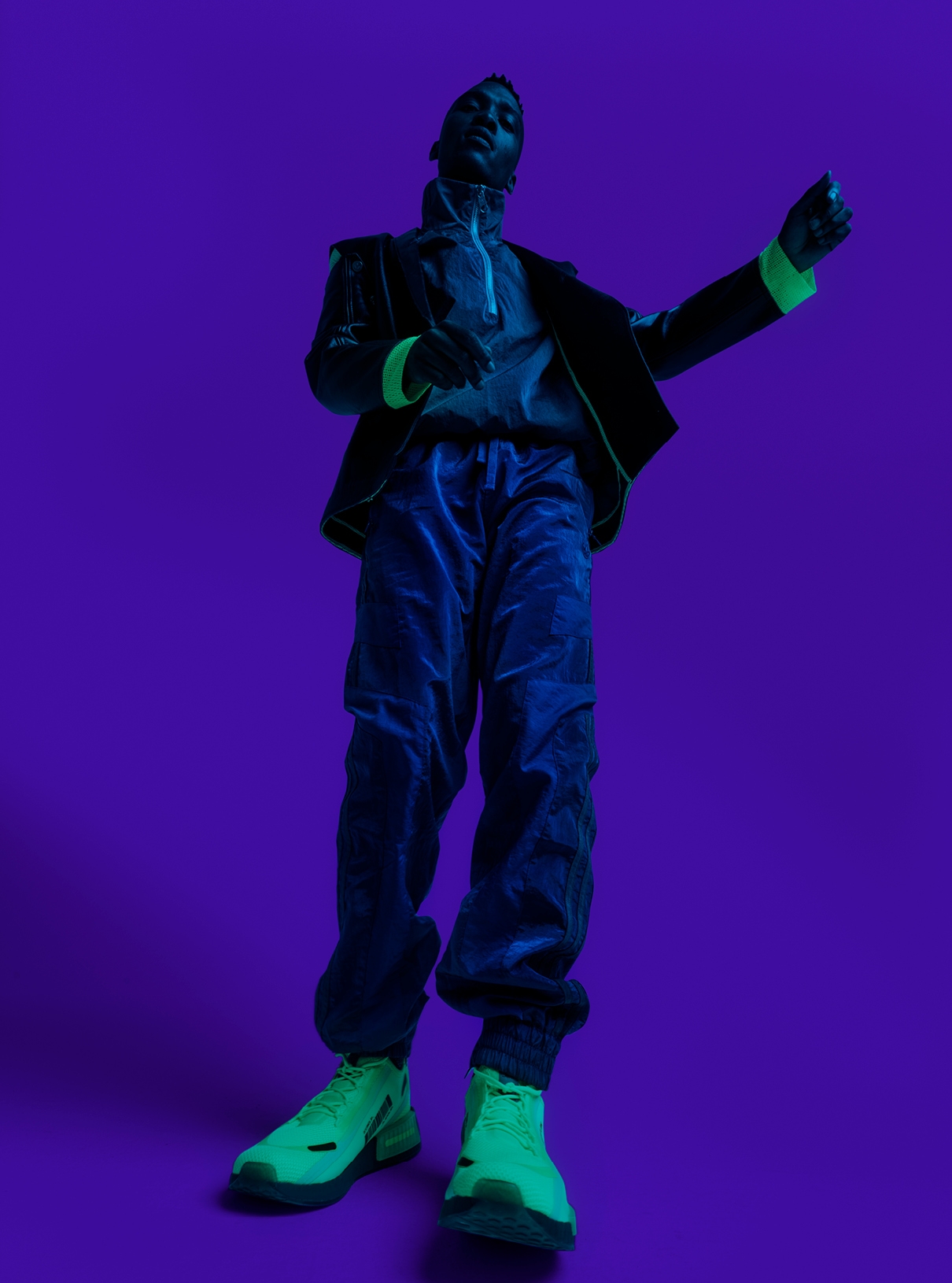
Back home, DJ Lag’s own event which he called Something For Clermont would be held for the first time in Durban at an outdoor pub called The White House Cafe in 2018. That month had been frantic; despite having the best of teams behind him, registrations for the event were slow and countless hours were spent coming up with creative ways to draw fans in. Just in time, Lwazi reminded the teams around him that an international approach would not work in Clermont, and they needed to change gears to give the people he knew best, what they were familiar with. He’d pointed out that what was needed was a change to the design of the flyer, and a hand-delivering convoy to spread them throughout the city. By 7:PM on the night of the event, the sun was starting to sink over the White House, with groups of mingling partygoers turning to hundreds. Eager fans came in droves, flattening the barrier gates and spilling out onto the open streets for kilometers around. A pub the size of a small parking lot now played host to an audience nearly 10 times over capacity, with supporting acts such as Mampintsha and Moonchild Sanelly fighting their way through the crowd and onto the stage, performing with an inebriating energy that could only be doused by the next morning’s sun. In future, Something For Clermont would have to happen somewhere else.
Read this next: The beautiful chaos of Amapiano, South Africa's emerging house movement
The next iteration of Something For Clermont would be partnered with Boiler Room. With lessons learnt, Lwazi is set to host the forthcoming iteration at the Sugar Ray Xulu Stadium, as the first ever artist to perform there. Usually reserved for soccer games and refurbished in 2009 to the value of 73 million rand, it’s likely that this is where we’ll see the convergence of gqom, Afro-house-and-tech and amapiano in its most balanced expression. For the past few years, amapiano has experienced a meteoric rise internationally and at home, coming to dominate local airwaves as South Africa’s new pop music born from kwaito, Bacardi house and jazz roots.

“Gqom started just like amapiano did, so there are similarities, but Gqom was made for dancing rather than singing. I don’t like to compare amapiano and Gqom because they’re both so different. But I think Gqom didn’t go as big because there were only a few of us pushing overseas. It was me, Rude Boyz, Distruction Boyz and Babes [Wodumo], but there are more amapiano artists pushing that side… I’ve always wanted to be a well known artist here at home, I’m really grateful to be in this position right now. We pushed a lot overseas before 2020 but with this new album we decided to focus on pushing here.”
Read this next: No more 4x4: How sounds from the Global South stopped club culture stagnating
This idea is evident in all 15 tracks of 'Meeting With The King'. Throughout the album, there are themes of forward movement and drive in 'Keep Going' and 'No Child’s Play' interspersed with themes of faith and hope in 'Destiny' and 'Lucifer'. With a mix of local and international features, well known and up-and-coming, Lag chose to pair up with artists he believed shared his vision, supported him throughout his career and who he would like to show support to, for an interesting mix of locally anchored sounds. Chosen from over 100 tracks, Lag settled on these to pay homage to the sounds that South Africa can be most proud of, as tracks that allowed him to stretch his creativity – and there’s plenty of room for more where these came from, set for release later in the year.
“I’ve been approached by a lot of folks wanting to work, but he’s got that different type of Gqom,” says “Lucifer” collaborator Lady Du. “It's got a richness and rawness… It’s because of the taste and the sound that he has that I agreed to work with him. Even when we were shooting the cover art for the album, it was so amazing, he is such a grand person and we shared so much.”
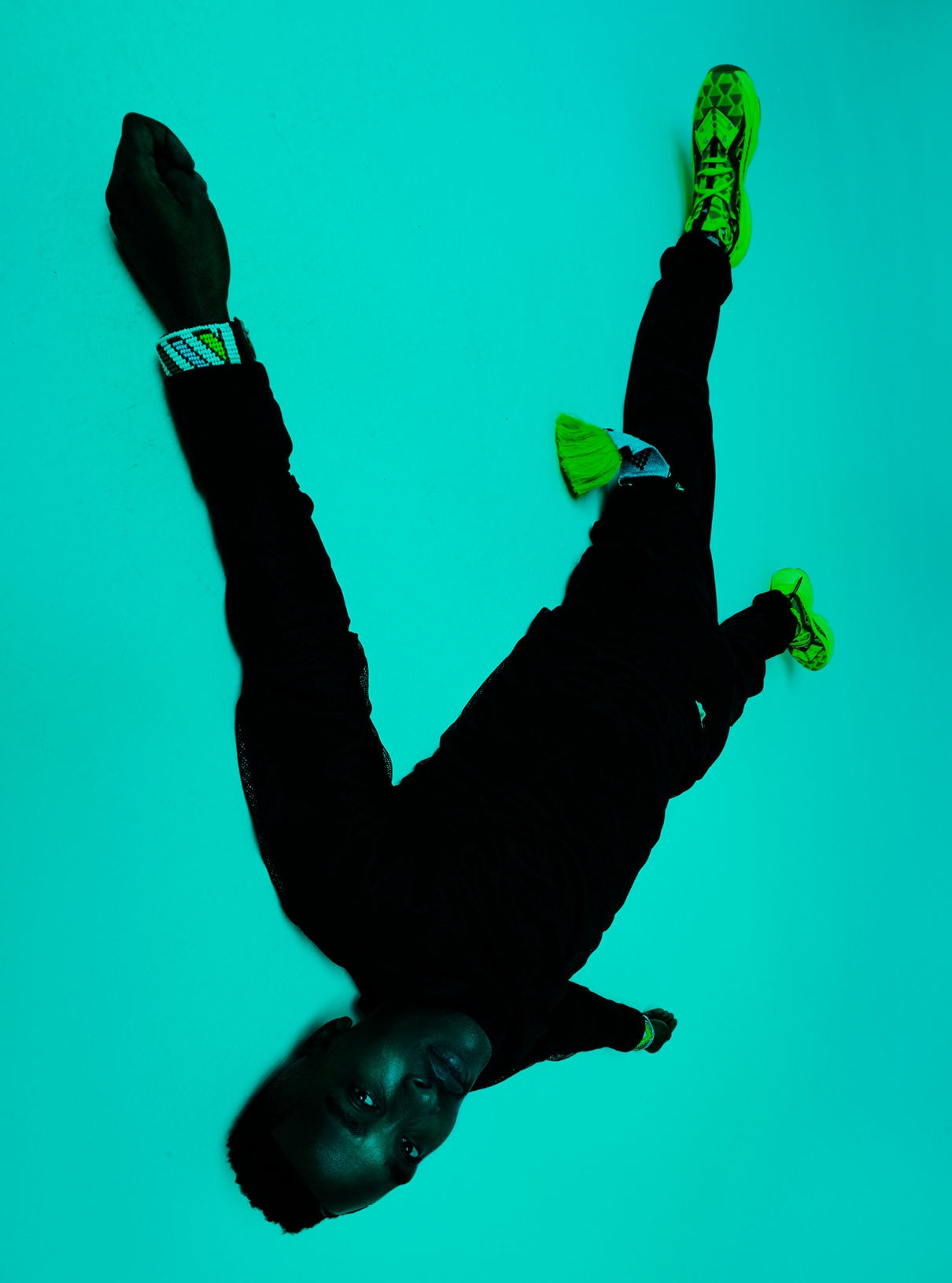
South Africa’s scenes carry interesting narratives around “genre death”, where one movement often comes along to replace another as the dominant sound in popular music. For a time, kwaito claimed the most space as the sound of the new South Africa, followed by America-derived hip hop and house then becoming localised to bring up sounds such as Motswako and Bacardi. As amapiano came to the fore, conversation grew anticipating Gqom’s demise in the wake of amapiano’s international appeal, but Lag doesn’t see a reason why the two can’t co-exist:
“When I started mixing Gqom and amapiano, I started by making a purely amapiano beat. To make it my own I went in and replaced all the drum kits to a Gqom setup, then I’d put the tempo up a little bit faster – maybe a 127 – to give it the right speed. I’ve never worked with any amapiano producers before Mr JazziQ, so he really helped with the bassline and mixing to make sure it sounded good for Vic Typhoon and Lady Du to come in. I really wanted to show that we can also mix the genres and still have it sound good, and still hear my sound within other sounds. I finished the album in late 2020. I kept making more music and sending it to the team and going back and forth for all of last year. We finally decided on these tracks, but soon we’ll release a deluxe version of 'Meeting With The King' which will have five extra tracks, featuring Sho Madjozi and Novelist also. On this version we have a lot of South African features and a lot of new sounds, like Afrotech and amapiano but you can still hear my sound in it – and even a new style people are trying out here in Durban called Gqomtech, which I first heard by a group called Deep Narratives. It’s really picking up. It’s slower than Gqom, it’s like 122 or 123. You’d need a lot of plugins, like synthesizers, but the drums are still the same you’d hear on a Gqom track. I use GMX, Nexus and Toxic… that’s where you’re gonna find a lot of electronic effects that I always use for Gqomtech. I’ve grown as a person, as a producer and as a parent,” says Lag. “Before I didn’t even have time to spend with my son because I was traveling a lot, but the music helped me to focus and take things seriously.”
With the final track from the album titled 'DJ Lag', it seems that in the end he has found the dream he once held as a boy fully realized, so much so that his own son and so many others from his hometown have the freedom to dream even bigger. Whether by chance or by choice, Lwazi inspires everyone who comes into his life to test the limits of their expectations and to embrace the potential for great things to come from the raw and the unseasoned, and that often we need to explore the furthest reaches in order to truly be able to come home to ourselves.
DJ Lag's 'Meeting With The King' is out now, get it here
Shiba Melissa Mazaza is a freelance writer, follow her on Instagram
